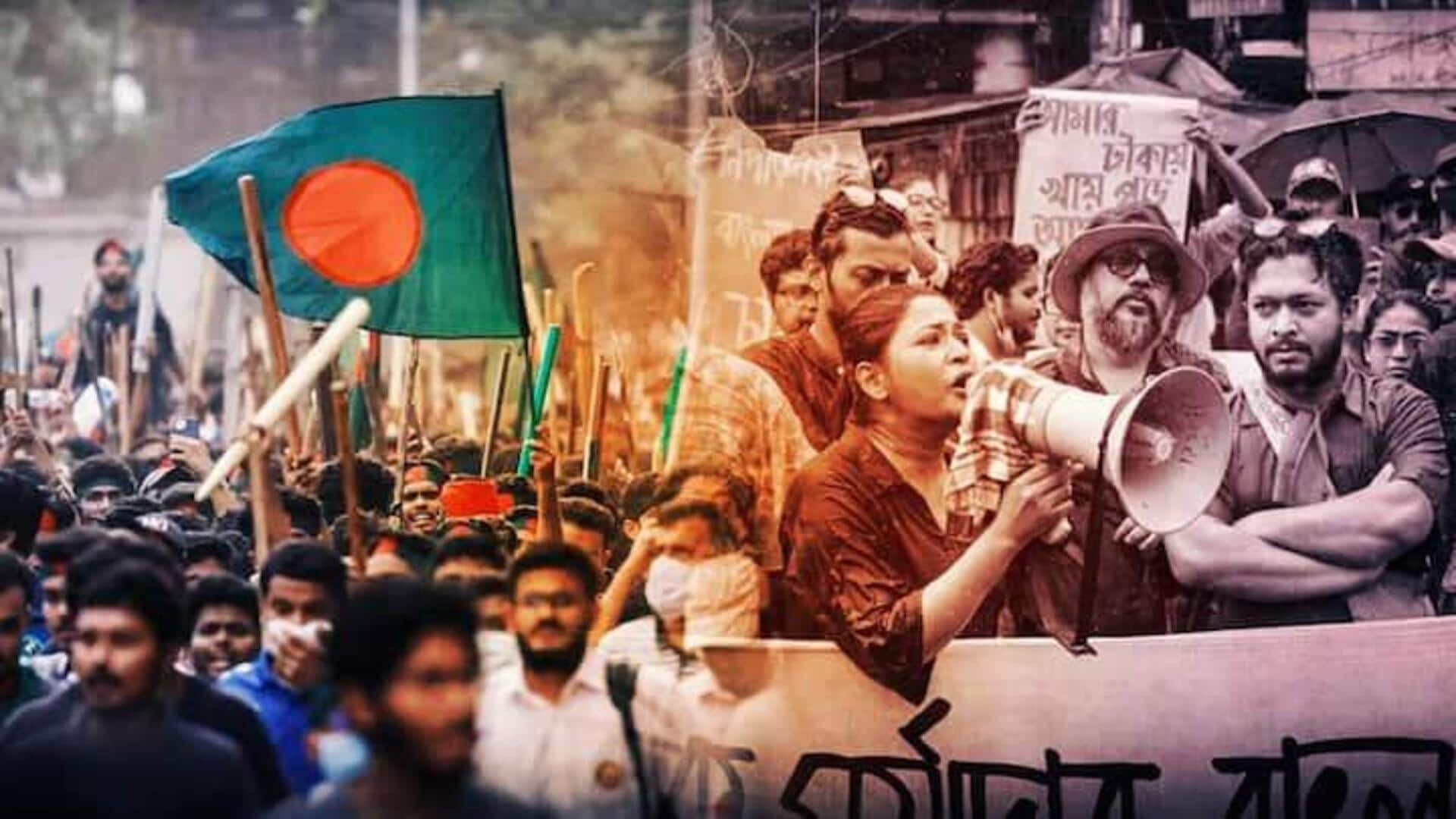
What happened at Sheikh Hasina's residence before her dramatic escape
What's the story
Sheikh Hasina resigned as Bangladesh's prime minister and fled the country on Monday, following weeks of violent protests against government job quotas that later turned into a movement calling for her resignation. The decision to step down came after intense discussions at her official residence, Ganabhaban Palace, with top security officials and the police force. Local reports claimed that she initially refused to step down and questioned the security forces' inability to contain protests.
Departure
Sheikh Hasina flees to India amidst escalating protests
However, Hasina was given a 45-minute ultimatum by security chiefs to leave her residence as protesters began marching toward it. She eventually agreed to resign following a phone call from her United States-based son, Sajeeb Wazed Joy. She had planned to record a farewell speech but was unable due to the imminent arrival of demonstrators. Accompanied by her sister Rehana, Hasina left Ganabhaban and completed her resignation formalities at Bangabhaban, the Bangladesh President's official residence.
Asylum
India grants temporary stay to Sheikh Hasina
The sisters were then escorted by military helicopter to India at 2:30pm. The Indian government has allowed Hasina a "temporary halt" in the country, citing her as "a longtime friend of India." She will continue her journey to London from India. In an interview with NDTV, Joy stated that his mother did not want to leave Bangladesh and was adamant to stay. "It's very disheartening...because it was her dream to turn Bangladesh into a developed country," he said.
Security
Why Hasina was unpopular
Hasina, the world's longest-serving female head of government, is the daughter of Bangladesh's founding father, Sheikh Mujibur Rahman. She was initially elected prime minister in 1996 and again in 2009, for a total of 20 years in power. Hasina, who won her fourth term in elections this year, has been accused of suppressing opposition and dissent, orchestrating disappearances, and arranging extrajudicial killings. She has refuted the claims.
Unrest
Explained: Student protests in Bangladesh
Protests against Hasina's government began in July after a court reinstated a job quota scheme that had been canceled in 2018. The policy reserved 30% of government jobs for descendants of veterans who fought in the 1971 war of independence against Pakistan—the majority of whom are affiliated with Hasina's Awami League party, which led the independence movement. An additional 26% of posts were granted to women, disabled people, and ethnic minorities, leaving just approximately 3,000 positions for about 400,000 graduates.